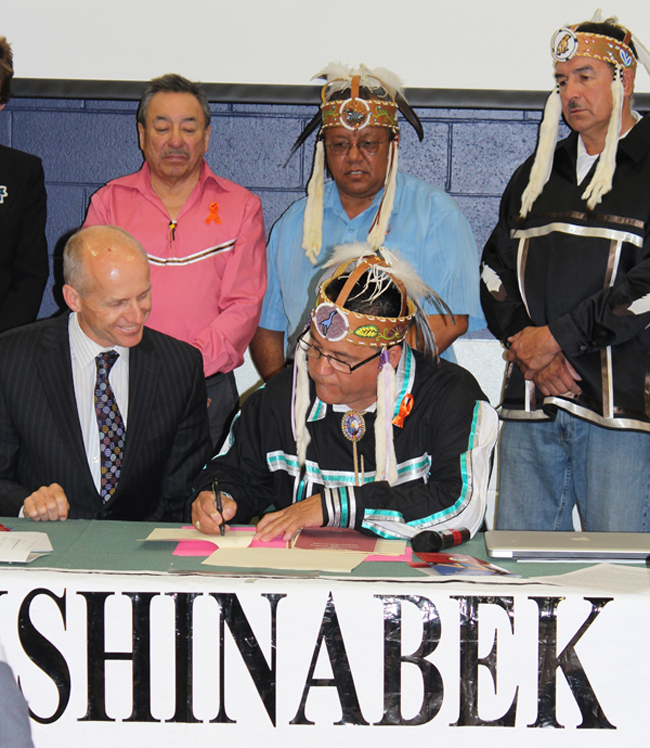Anishinabek Nation joins partnership to combat cancer

This protocol is a key priority of CCO’s Aboriginal Cancer Strategy II (ACS II), and is an agreement that sets a course for a collaborative relationship between CCO and First Nation, Inuit and Metis (FNIM) communities. Over the coming months CCO will be signing Relationship Protocols with other FNIM groups.
In Ontario, cancer patterns differ significantly between First Nations, Inuit and Metis populations and the general Ontario population. Cancer incidence is increasing among First Peoples and their cancer survival rates are worse than for other Ontarians. CCO recognizes the unique needs of FNIM peoples, and this protocol provides clarity and certainty about how CCO will work with their communities to implement the ACS II priorities.
Michael Sherar, President and CEO, Cancer Care Ontario says, “To be successful we need strong community partnerships, and this protocol symbolizes our commitment to engaging First Nations leaders in the process.”
Grand Council Chief Patrick Madahbee said the Union of Ontario Indians has a primary mandate to protect the interests of its 60,000 citizens.
“Whether it’s advancing political positions or ensuring that the Anishinabek have all the information they need to lead healthy, productive lives, we are committed to working with partners who share our goals.”
The ACS II was developed to reduce new cancer cases and improve the quality of life for those living with cancer.
The priorities are: building productive relationships, research and surveillance, prevention, screening, supportive care and education.


